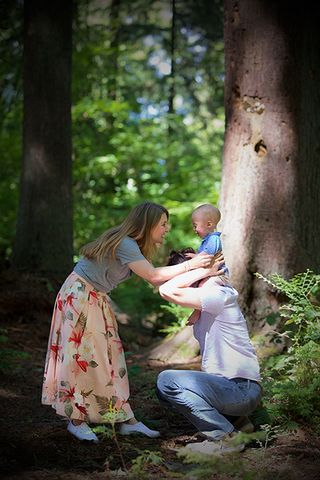
The human body is an amazing, complex machine designed to see us through all of life’s daily challenges. But, did you know that not every part of our body is actually human? In fact, each one of us is host to trillions of bacteria that are collectively known as our microbiome.
The good guys in this diverse ecosystem—called probiotics—work with our own cells to keep us healthy by supporting our digestion, immune system, nutrient absorption, and memory, and even helping us to keep our emotions in check. These microscopic superheroes also help to produce vitamins and enzymes, and discourage unfriendly invaders.
As with everything in life, the key to a healthy microbiome is balance. With about 85% good microbes and 15% bad, a balanced population of bacteria will work hard to keep you healthy.
And, the secret to achieving this balance lies in having a solid understanding of what lifestyle and environmental factors affect your beneficial flora so you can make microbe-friendly choices as you navigate your days. You see, we’ve only discovered the importance of our microbial self in recent years so our modern society isn’t currently set up to support our friends beneath the microscope.
Before we get into the nitty gritty of actionable items, let’s first consider a few aspects of your life that you had absolutely no control over, but that could be a good indicator of the state of your microbiome.
Were you born vaginally to a probiotic-rich mom?
Our microbiome is passed from generation to generation from mother to child—and the quality of your microbial inheritance can affect nearly every aspect of your health. Additionally, babies born vaginally to a mom with a thriving microbiome have more beneficial microbes than those born via Cesarean section. Considering that your immune system develops in those first few months of life (and that 80% of the immune system is in the gut), the effects of your initial microbe inoculation could last a lifetime.
Were you breastfed exclusively?
Another blast from the past! Did you know that how your own mother fed you decades ago can influence your health today? Babies breastfed exclusively for the first six months receive the perfect combination of microbes, nutrients, growth factors, antibodies, and prebiotics to nourish their microbiomes and set the foundation for a lifetime of good health. Also, feeding only breast milk for the first half year helps to protect a baby’s gut lining (which is still slightly permeable) from invaders that can cause immune issues down the road.
Regardless of whether or not your startup conditions were optimal, let’s look at the steps you can take, starting today, to ensure you are living in harmony with your microbes:
1. Steer Clear of Toxins and Antimicrobials
Unfortunately, antimicrobials and toxins that can deplete your beneficial bacteria are everywhere. Probiotic-destroying elements are in the air, in the ground (pesticides), in our homes (cleaning supplies, personal care products, and paraffin candles), and in our food and water (chemical ingredients, chlorine, and fluoride, to name a few). When you can, choose organic whole foods, filtered water, and natural products and cleaning supplies that rely on the power of plants, not harsh antibacterial chemicals and other toxins.
2. Get Moving
Research shows that people who are active have healthier microbiomes than non-active folks. In one groundbreaking study, active rugby players had much more diverse gut microbiota than sedentary subjects1. Mouse studies also show that exercise increases amounts of beneficial bacteria by up to 40%2. Get out there and move!
3. Do Your Best to Avoid Unnecessary Antibiotics and Medications
Many types of medications—such as antacids, birth control, hormone replacers, steroids, and NSAIDs—are harmful to your good gut flora, so find natural alternatives whenever possible. Antibiotics, both in the food supply and as medicine, also tend to indiscriminately wipe out your good bacteria along with the bad, so only take them if absolutely necessary and consider supplementing with a probiotic in conjunction to help maintain your healthy microbial balance.
4. Eat Well
What you eat can have a tremendous effect on the composition of your microbiome, often within just a few hours of a meal3. A diet high in plant-based fiber and whole foods will do wonders for your gut flora, and adding in probiotic-rich fermented foods whenever possible will add even more good microbes! Make sure to avoid processed, sugary foods and anything containing emulsifiers, pesticides, artificial sweeteners, or GMOs4—these all deplete good bacteria. What you don’t eat can benefit your gut as well! Consider trying intermittent fasting, which gives your gut microbes time off from their regular digestive tasks, so they can hone in on growing and maintaining their populations.
5. Hand Wash Dishes
Your dishwasher is no doubt convenient, but did you know that it may be harming your gut? Researchers studied 1,029 Swedish children and discovered that kids whose families hand washed dishes (as opposed to using a dishwasher) had significantly lower rates of immune system issues5. Why? Washing dishes the old fashioned way exposes you to more microbes and when it comes to immune system development, the more bugs, the better.
6. Get Dirty
You may be happy to know that there is such a thing as being too clean! In fact, all of the sanitizing products and antibacterial soaps that are so prolific on store shelves these days may be silently damaging your microbiome. Furthermore, studies are showing that we need exposure to dirt and germs to train our immune systems to respond appropriately. We’re learning that the over-zealous hygiene habits of our Western culture are working against us. Our advice, don’t be afraid of a little dirt (whether it’s on the floor or on your fruits and vegetables) and stick to simple, natural soaps and water when you clean.
7. Eat Plenty of Prebiotics
You need to eat and so do your microbes, so why not do some double duty? Prebiotics are indigestible fibers that nourish and feed all the healthy bacteria in your gut; including prebiotics in your diet will help to ensure that the colonies of good guys are flourishing. Good sources of prebiotics include asparagus, bananas, onions, garlic, jicama, and dandelion greens, but a food-based prebiotic powder is one of the easiest ways to give your beneficial bacteria the perfect meal!
8. Be Easy About It
Yes, even stress can wreak havoc on all the good guy microbes in your body. You see, stress makes your gut more permeable—or accessible—to unwanted bacteria, antigens, and toxins. Research shows that once the bad guys get in, they trigger an immune response that in turn depletes your microbiome of good bacteria6. Practice daily mindful meditation, yoga, and other relaxation techniques to keep stress at bay.
9. Spend Time Outdoors
Having plenty of exposure to nature, organic soil, and animals in the home (or on a farm) gives you the opportunity to interact with a wonderful plethora of bacteria that will ultimately strengthen your system. Go camping, try gardening, or romp around with your dog in the yard for a good dose of microbes (and stress relief!).
10. Take a Probiotic
Of course, we saved the best for last! Even if we had the perfect microbial start to life, live relatively stress-free, eat all organic, and exercise regularly, our modern lifestyles inevitably lead to some depletion of our good bacteria. Fortunately, you can help replenish what you may have lost (or never had to begin with) by taking a daily high-quality probiotic formula like PRO-15. Hyperbiotics formulas (see specialized products for kids, women, moms, and even pets!) introduce your gut to some of the most beneficial microbes around to help you stay vibrantly healthy.
As research into the microbiome expands and we learn more and more about how much beneficial bacteria do for us, one thing is clear—maintaining plentiful colonies of friendly flora is absolutely crucial for staying healthy. The good news is that there are simple steps you can take to make sure that the good guys in your body are thriving so you can live your healthiest days!
References:1. Clarke, S. F., Murphy, E. F., O'sullivan, O., Lucey, A. J., Humphreys, M., Hogan, A., . . . Cotter, P. D. (2014). Exercise and associated dietary extremes impact on gut microbial diversity. Gut, 63(12), 1913-1920.
2. Campbell, S. C., Wisniewski, P. J., Noji, M., Mcguinness, L. R., Häggblom, M. M., Lightfoot, S. A., . . . Kerkhof, L. J. (2016). The Effect of Diet and Exercise on Intestinal Integrity and Microbial Diversity in Mice. PLOS ONE, 11(3).
3. David, L. A., Maurice, C. F., Carmody, R. N., Gootenberg, D. B., Button, J. E., Wolfe, B. E., . . . Turnbaugh, P. J. (2013). Diet rapidly and reproducibly alters the human gut microbiome. Nature, 505(7484), 559-563.
4. Shehata, A. A., Schrödl, W., Aldin, A. A., Hafez, H. M., & Krüger, M. (2012). The Effect of Glyphosate on Potential Pathogens and Beneficial Members of Poultry Microbiota In Vitro. Current Microbiology Curr Microbiol, 66(4), 350-358.
5. Hesselmar, B., Hicke-Roberts, A., & Wennergren, G. (2015). Allergy in Children in Hand Versus Machine Dishwashing. Pediatrics, 135(3).
6. Dinan, T. G., & Cryan, J. F. (2012). Regulation of the stress response by the gut microbiota: Implications for psychoneuroendocrinology. Psychoneuroendocrinology, 37(9), 1369-1378.
___________________________________________________________________________________________
Written by Jamie Morea, Gut Health Evangelist, Mama Bird & Co-founder of Hyperbiotics. For more ideas on how you can maximize wellness and benefit from the power of probiotics, be sure to subscribe to our newsletter.

